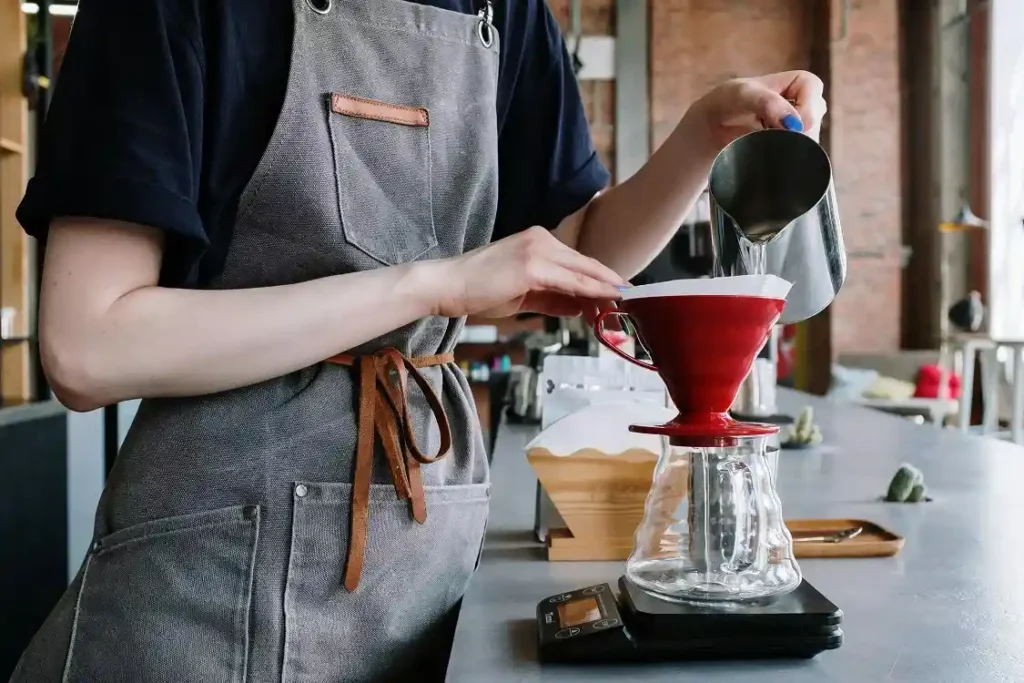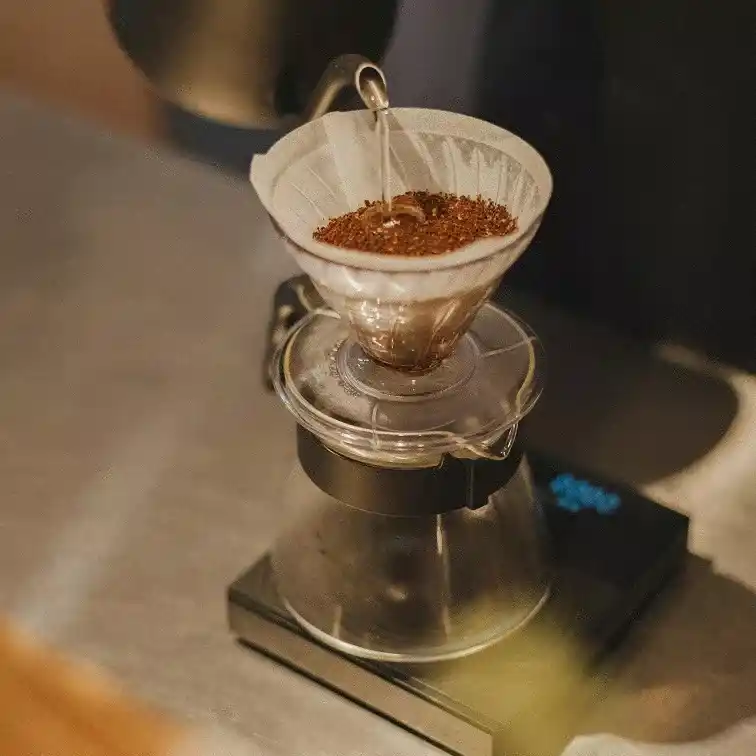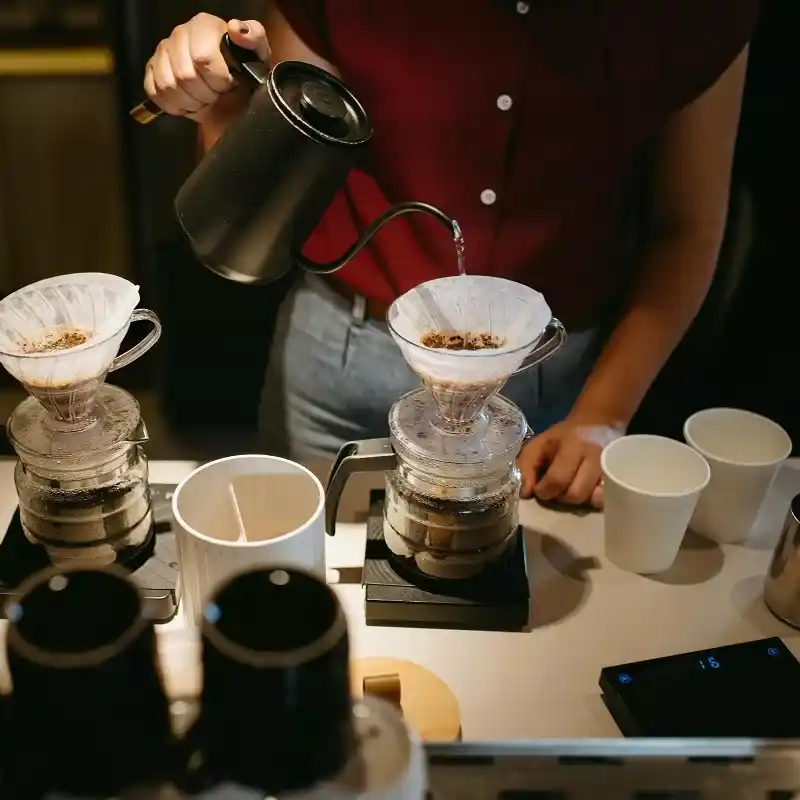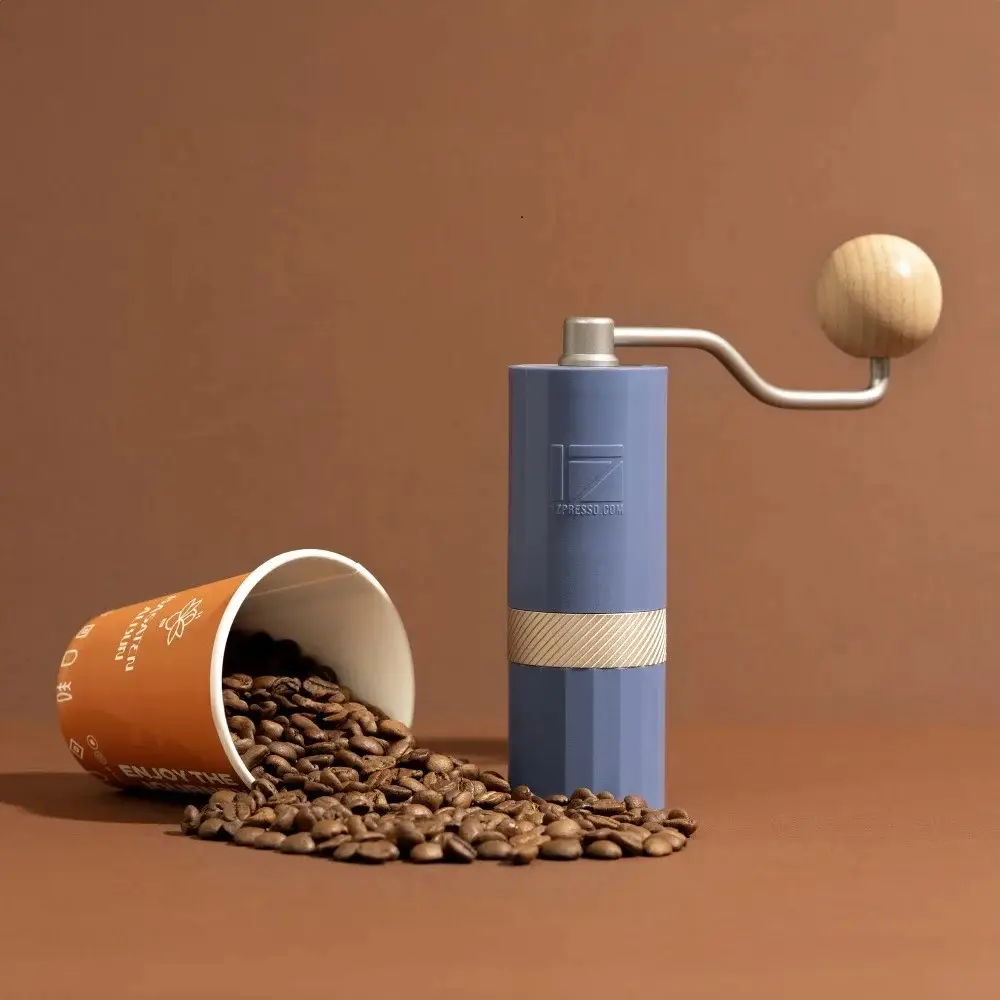Why do you need special scales for making coffee
If you want to achieve a consistent, balanced flavor, especially when brewing with alternative methods (pourover, aeropress, kemex), it is important to maintain the exact ratio of coffee to water. This is where specialized coffee scales come in.
Conventional kitchen scales are not always accurate enough, and a difference of even 0.1 grams can significantly affect the final taste of the drink. Special coffee scales are designed for such delicate work: they have high sensitivity, quick response to weight changes, and are often equipped with a built-in timer that allows you to control the brewing time.
In addition, some models can be synchronized with a smartphone to save your recipes and track the coffee brewing process in real time.
Special scales are not just an accessory, but a necessary tool for achieving repeatable and high-quality results.
Scales for everyone: from beginner to pro
Coffee scales are useful not only for professional use, but also for home use. If you like to test different types of coffee, grind, water temperature, and other variables, you can’t do without a scale. This is the main tool for precise control of each parameter.
It is difficult for beginners to recognize the ideal proportions by eye. The scales allow you to learn how to control the brewing process and understand how changing grams affects the taste.
For a cafe, a high level of accuracy is a must. The scales help baristas prepare espresso and other drinks by controlling the quality and optimizing the consumption of coffee and water.
There are compact models of scales. They are suitable for those who like to take their coffee equipment on trips. Such models are lightweight, portable, and run on batteries or USB.
A coffee scale is a versatile tool that will make coffee brewing a high-quality and controlled experience, regardless of experience level.

Types of coffee scales and their features
There are several types of scales on the market that differ in terms of their operation, accuracy, and purpose.
1. Mechanical scales
This is usually a lever system with springs or a dial. The weight is displayed on an analog scale. They do not require electricity or batteries, are reliable to use, and are durable. They can have an error of 1 gram, not a very fast response, which is inconvenient when making coffee, and do not have a timer. The best option in the absence of electricity and for rough weighing.
2. Electronic scales
Such models are equipped with high-precision sensors. Most electronic scales have a digital display and additional functions. They quickly respond to weight changes, automatically turn off and have a zeroing function. It is possible to integrate with a timer and mobile applications. The disadvantages include the need for power, sensitivity to moisture and high temperature. They are ideal for home and professional use.
3. Compact and portable models
Compact size, minimalist design, often battery operated.
Such scales are easy and convenient to transport. They can work autonomously for a long time. They are perfect for traveling, office or small kitchen. Due to the small working surface, this is not the best option for weighing large containers. Also, they have fewer functions compared to professional models.
Key criteria for choosing scales
The right choice depends on your needs, brewing method, and even lifestyle.
1. 1. Accuracy and weighing limits
For most alternative brewing methods, the optimal accuracy is between 0.1 and 0.5 grams. For espresso – up to 0.1 grams.
As for the weighing limit, a scale with a range of up to 2-3 kg is usually sufficient for home use. If you use heavy accessories (e.g., a glass cupcake maker or French press), you should choose a model with a higher maximum weight.
2. Platform size and design
The scale should have a comfortable and stable platform on which to easily place your coffee maker, cup, or server. It is important that the size of the platform corresponds to your favorite brewing method. For espresso machines, compact scales that fit under the portafilter are suitable. For a steamer, you need a wider platform to hold a dripper or cupcake stably. Also, pay attention to the anti-slip coating that prevents the container from slipping while brewing coffee.
3. Response speed
When brewing, it is important to see an instantaneous update of the weight. If the scale has a delay of even 1-2 seconds, it can ruin the whole process. Choose models with a minimum response time, because the best ones update the readings in almost real time, which allows you to control the flow with maximum accuracy.
Useful additional features
Manufacturers are increasingly equipping scales with additional functions.
1. 1. Built-in timer
One of the most important and very convenient functions that allows you to simultaneously monitor both the weight and the brewing time. It often starts automatically when you start pouring water.
2. Connect to your smartphone
Some models have Bluetooth or Wi-Fi modules and can be synchronized with smartphones or tablets via special applications. This allows you to save your own recipes, download recipes from the Internet, analyze errors, and build graphs (pouring speed, changes in weight).
3. Protection against liquid and dust
Moisture protection is an important feature that extends the life of the device.
What to look for:
- The presence of a silicone mat or waterproof coating.
- Degree of protection (for example, IP65).
- Protected electronics and gap-free housing.
This is especially important for baristas or those who make coffee frequently.
4. Autonomy of work
The most popular power options are AAA batteries, built-in rechargeable batteries, or USB charging. Some models have a charge indicator and power-saving mode.
For traveling, it is better to choose a battery-powered model. For home use, devices with USB-C charging will be more convenient.
Practical tips for use
To ensure long and accurate service life, you should follow a few simple rules of care and use. They should be placed on a flat, stable surface, avoid vibrations, and do not allow the platform to protrude beyond the edge of the table. Clean the device regularly with a damp cloth, do not use aggressive agents, and wash the silicone mat separately. Avoid temperature extremes, hot containers, and moisture. Periodically check the accuracy with calibration objects. Store in a dry place, and remove the batteries when not in use for a long time. Do not overload the device and protect it from shocks.

Conclusions and recommendations
A specialty electronic scale is not just an accessory for coffee fans, but an essential tool if you want consistent, delicious, and repeatable results. They help you to precisely control the ratio of coffee to liquid, as well as other important parameters during coffee brewing, such as brewing time, pouring speed, etc.
Let’s summarize the key points:
- Accuracy is critical, especially for espresso and alternative methods.
- Electronic scales with a timer and quick response are the best option for most users.
- Additional features such as Bluetooth, moisture protection, and USB charging are optional, but they significantly improve the user experience.
- Care and proper use ensure the longevity of your device.
For beginners, simple scales with an accuracy of 0.1 g and a timer are suitable. Home users value convenience, autonomy, and design. Professionals should choose models with app connectivity and moisture protection, and travelers should choose lightweight, portable models.






